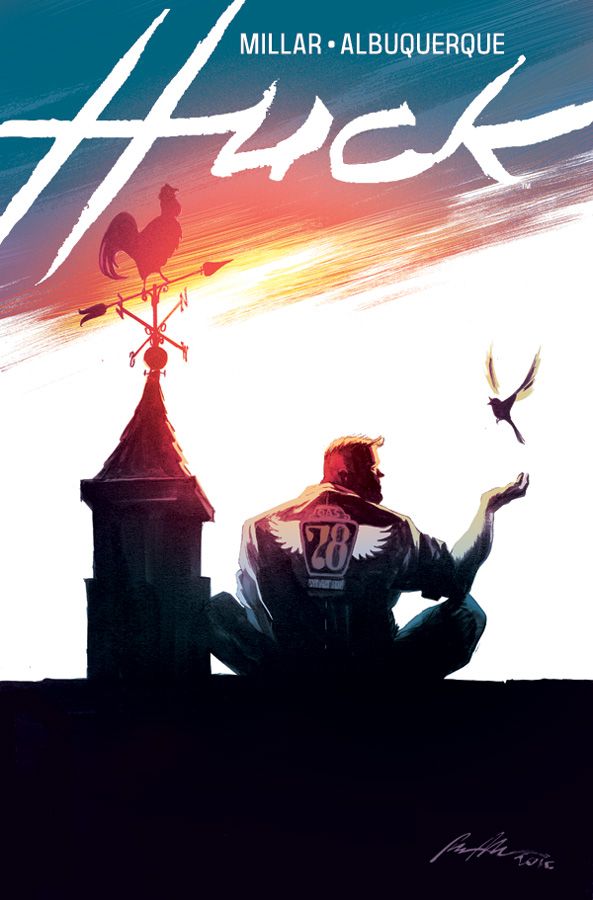Mark Millar and Rafael Albuquerque's "Huck" #1 introduces the titular character as a small town man imbued with fantastic powers and raised to do one good deed per day. It's an earnest tale with heart, but -- as a first issue -- it feels slight. There is an inciting incident to draw readers into the plot, but that doesn't happen until the end of the issue. However, even at its slow pace, the book benefits from Albuquerque's beautiful illustrations as he delivers a Norman Rockwell-like atmosphere, which drives home the innocence of the character.
RELATED: Studio 8 to Adapt Millar & Albuquerque's "Huck" for Film
Millar's introduction is told mostly through the supporting characters' points-of-view, giving fans a look at what Huck means to the town around him and offering a solid opinion on Huck himself. This is a man who voluntarily lives in service of others. He's a heartwarming, honest soul and it's impressive how Millar -- known for more exploitative fare like "Wanted" and "Kick Ass" -- reels in the cynicism for this story. While there is an instigating moment at the end rooted in this cynicism, it's actually not the message of the book but the damning post around which the rest of the story will be tied, like "The Lorax" or "The Giving Tree." Huck is a wide-eyed innocent, watching the effects of his good deeds from afar and getting true joy from the happiness his work brings to others. It's not just superpowered problems he deals with; even small things like taking out the trash for the entire neighborhood or paying for everyone's meals in a drive-thru line show Huck is good hearted man who happens to have powers, rather than a superhero who does good deeds.
Colorist Dave McCaig washes Albuquerque's gorgeous pages in the beautiful glow of a perfect Midwestern sunset, and the soft pencils have a storybook quality that heightens the feeling of myth surrounding Huck. The artist stretches his pages wide, using low panel counts but giving fans a lot to pour over in every scene. Huck has both power and grace, expressed in contrasting scenes like the opening, where he nimbly bounds across moving traffic, or when he makes his first world-altering decision near the end. The team has cited Channing Tatum as the perfect actor to play the character on screen (the rights have already been optioned) and, though the artist doesn't use Tatum as a reference, it is easy to see how that would work.
As an introduction, this feels more like a teaser than a full first issue. This is definitely a book that needs to be read in a complete collection, and it's a testament to the core concept that the character leaves fans wanting more when the issue concludes. The antagonist, who turns Huck's world upside down, is barely covered in these pages, leaving fans little affection or justification for her or her actions. This is where the cynicism creeps in, but hopefully Millar and Albuquerque can flesh her out as the story progresses and give readers a more nuanced reason for what happens.
"Huck" #1 wears its heart on its sleeve and is unashamed of doing so. This exploration of how the world can challenge innocence has a lot of potential and, though it will certainly be a better collection than month-to-month story, I encourage fans to pick this up and check out the opening chapter.

